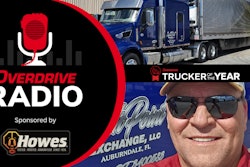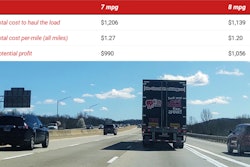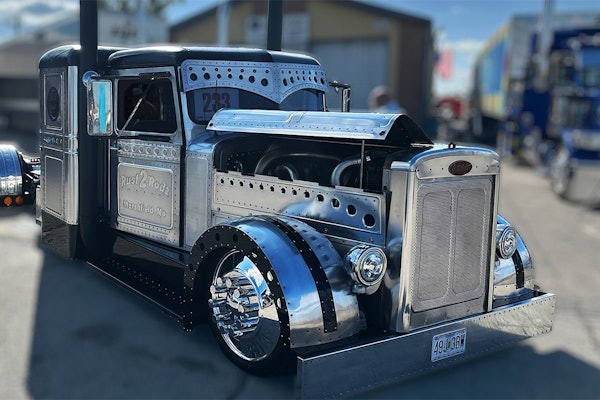A recent headline in Overdrive caught my attention:
Carrier lease-purchase programs ‘meaningful’ for at least half of lessee operators
In reading the article and the related stories of drivers commenting about both good and bad outcomes from carrier lease-purchase agreements, what I saw in the Federal Motor Carrier Safety Administration’s Truck Leasing Task Force’s report on lease-purchases was a typical bureaucratic one-size-fits-all, throw-the-baby-out-with-the-bathwater, knee-jerk reaction that would disallow companies from leasing trucks to their drivers at all.
The task force’s central recommendation -- that FMCSA do away with this established business practice -- fails to fall under the purview of regulatory authority. Even if pursued through legislation by Congress, it’s just a bad idea, and represents another example of government getting into the middle of a business contract, in this case because some carriers take advantage of lessees, and some drivers are naïve about the truthfulness of driver recruiters.
 David Owen, author of this editorial, is the President of the National Association of Small Trucking Companies.
David Owen, author of this editorial, is the President of the National Association of Small Trucking Companies.

In these generally large-company models, the driver and the company enter into a contract that spells out their respective terms, conditions, and mutual expectations. Through the years, from these contracts came many creative concepts that could mutually benefit both parties -- the operator and the company.
As history marched on, it seems that some companies have pushed the envelope to such an extreme as to be viewed as predatory lessors not only with equipment leases, but within other areas of the contract, such as fuel programs or other ancillary offerings. Many began to treat their lessees as profit centers, and in some cases, the company made more money off their drivers than they did hauling freight. Most of the (pardon the French) F--- The Driver (FTD) companies earned their reputation as predatory, and their driver retention and driver turnover rates reflected that.
[Related: Lease-purchase task force zeroes in on restrictive maintenance covenants]
Yet for every one company that is considered as such, there are ten who sincerely put these well-thought-out contracts together to help the driver succeed, take ownership of his own truck, and drive long-term as a leased-on owner-operator or make other moves toward greater independence, even growth.
Let’s regulate and legislate from a positive perspective rather than a negative one that represents an unattainable goal of perfection. Let’s let the marketplace repair itself, and not mandate industry-wide policy based on a few bad actors. Let’s let true deregulation create the level competitive playing field that it is designed to accomplish.
As some drivers point out, there are cases where the lease-purchase agreement is the only option their particular circumstances will allow to provide a path toward truck and business ownership. For other operators, leasing within good programs is a veritable business model to boost profits while sharing risk with the lessor, the carrier.
The fact that many lessees don’t exercise end-of-lease purchase options to end up with the truck’s title isn’t a reason to throw out the entire lease-purchase model. Think about it: How many people actually pay off their house?
[Related: Carrier lease-purchase programs 'meaningful' for at least half of lessee operators]










